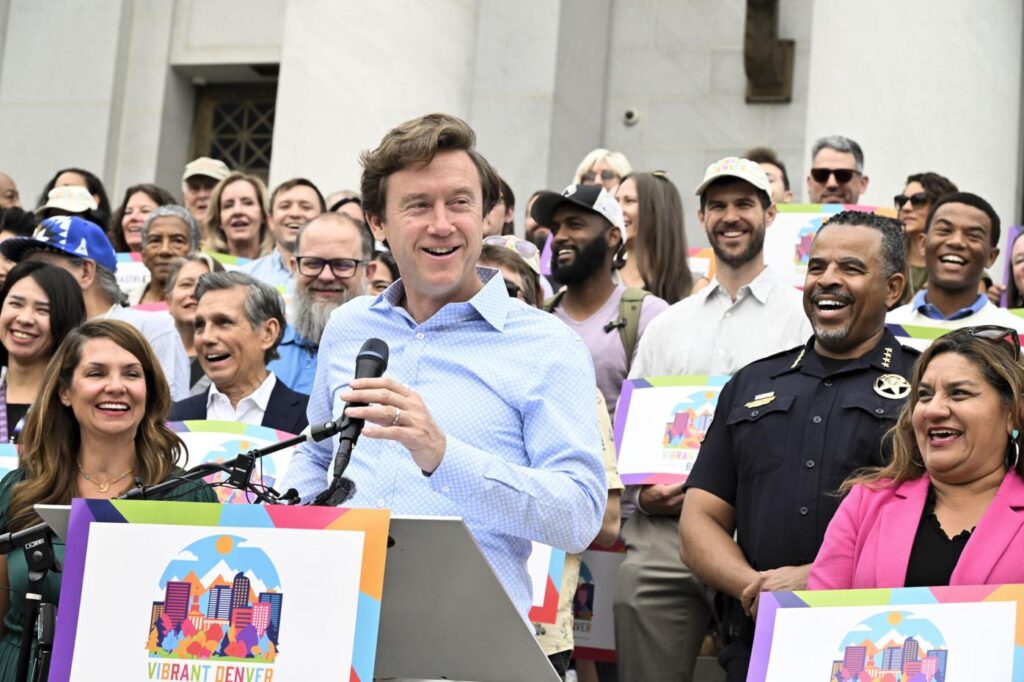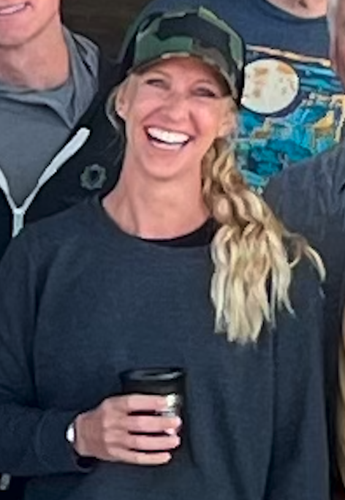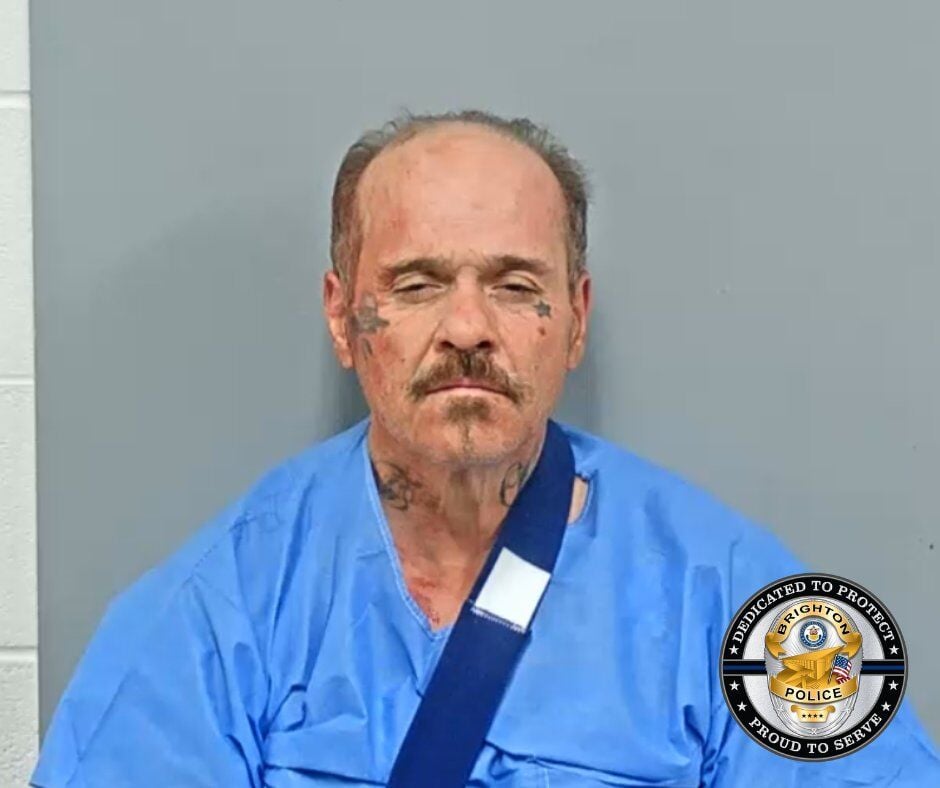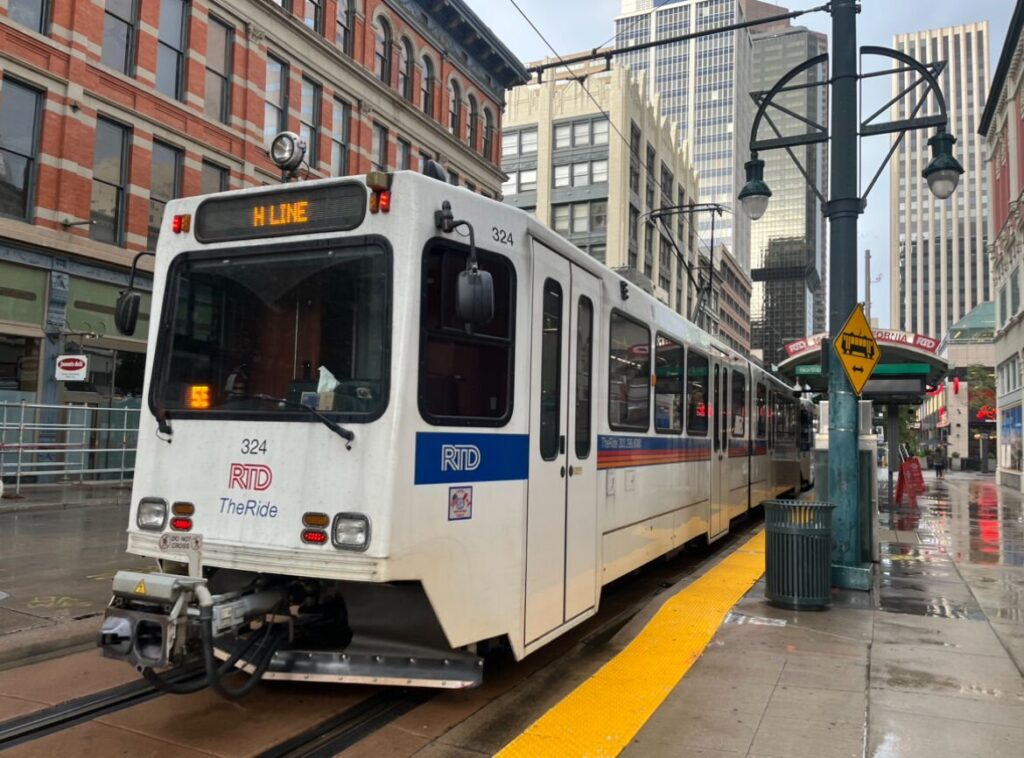Chief Pazen Q-and-A: 2020 hits retentions, but he’s proud of officers’ resolve
In its 161 years, the Denver Police Department has weathered global pandemic, recession and civil turmoil. But never all three at once.
The turbulence of 2020 has hit the police department’s recruiting and retention hard. By the end of May, the Denver Police Department saw seven officers resign. By the end of October, the number of resignations — including new recruits — increased to 25. Six officers have taken early retirement so far this year, compared with two at the end of October 2019.
The spike in resignations comes on the heels of the spring and summer’s upswell in racial tension and the passage of Colorado’s sweeping policing reform law in June, and Chief Paul Pazen has little doubt that magnified negative views of law enforcement have played a role in some officers leaving the force. He has seen more officers who had been on the force for fewer than five years leave the profession; at least one other has taken a position in law enforcement in another state and cited Colorado’s current political climate related to policing as the reason.
And Pazen doesn’t mince words about his concern that the current climate could impact future recruiting.
The department’s hiring numbers have also suffered this year. Before the COVID-19 pandemic hit Colorado, the Denver Police Department recruited and trained more than 100 new officers in a typical year. By the end of 2020, the department will have hired 42 new officers: 17 lateral hires — veteran officers from other law enforcement agencies — last spring and 25 recruits in a new class starting at the end of November.
As of Oct. 30, the police department had 1,555 officers total.
Although the hardships of 2020 seem never ending, the resolve of Denver’s remaining police officers to continue doing their jobs gives Pazen optimism. This week, he sat down for a (virtual) interview with reporter Julia Cardi and editor Vince Bzdek to discuss the current state of recruitment and retention, the Denver Police Department’s acceptance into a new training program and why he doesn’t believe what happened to George Floyd would have happened in Denver.
This Q&A has been edited for length. The complete Q&A is at denvergazette.com
Denver Gazette: First of all, what’s the size of the new recruit class?
Paul Pazen: Twenty-five officers. In 2020, we were anticipating hiring 138 officers.
So there were going to be 34 laterals split into two classes, a spring class and a summer class of 17 each, and then two basic classes of 52. Because of the economic downturn, we will have a grand total of 42 officers hired in 2020.
So we ultimately did one lateral class of 17 in the spring. And then this class that is starting in November, this was already recruited.
So when we’re talking about the recruiting side of things, this batch of individuals predates many of the challenges that we would anticipate moving forward.
Denver Gazette: And so the structure that you mentioned that was planned — the lateral class, and then the two basic classes — is that typically how things are done in a given year, in a non-COVID year? Or does that depend on how many recruits are expected?
Pazen: So, typically, the baseline is that two basic classes of the 104 officers. And this is all part of a five-year staffing plan. (Note: Garble? A bit confusing)
Additional context here is, during the Great Recession, we didn’t hire any police officers. So from 2008 until 2013, a five-year time period, the staffing was severely impacted.
And this five-year plan was to help us … not only to catch up from those previous years, but also to keep up with a growing population. And it’s important to note even there, right, it’s not a direct one-for-one, because you have 10,000 new residents, you need X number of police officers.
That model is different based on capital cities, for example. Or a bedroom community of, say, 100,000 residents would have a much different need than, say, a city of 100,000 residents that that has Coors Field, Sports Authority Field, Pepsi Center, and downtown district that has daytime influx of population, an entertainment district that has a nighttime influx of folks coming in, [and] a fourth or fifth busiest airport in the country that requires significant staffing.
So that’s why it’s not an apple-to-apple comparison to look at some cities when they don’t have the same challenges.
The city itself prior to 2020 saw some influx of businesses throughout the downtown core, the DTC and other areas, the airport with the travelers that went in and out of there. All of these contributed to the need that we have. The people that call Denver home, also the folks that are visiting the convention center and how many folks they bring into the city, as well as the folks that come in just to be entertained … all of those numbers had been going up quite significantly. As we progress through the great pandemic, we would anticipate that many of those pre-COVID challenges will be back.
Denver Gazette: Can you talk a little bit more about how the economic downturn has affected recruiting? Is it effects on the budget for training; is it effects on the budget for hiring?
Pazen: So I think it plays a part in future recruiting. This [November’s] batch of 25, they were recruited pre-COVID, pre-economic downturn, pre-social unrest. Our concern, truly, is what this is going to look like in 2021 and beyond with predominantly, some of the negative views that have come out of the social unrest that we will have to work through and build trust, particularly in the communities that we want to recruit from.
We make no secret about it, we have really strived to increase the number of women in the Denver Police department. This class, depending on some of the final processes, could be as high as 40% — maybe even a little bit higher than 40% — women, which would be quite remarkable.
And one of the reasons that really shows what it is that we believe in and value is, there’s a pretty extensive RAND Corporation study out of Chicago, and it indicates if one female officer is present, that use of force is reduced by as much as 60%. So we really have made it a focus even in this class that we’re talking about right now.
The last basic class, over 30% of the class was women. Across the nation, women typically make up about 12% of law enforcement. So that’s one of the areas that we want to improve upon.
Denver Gazette: Let me just follow up on that. Why does having women go out on calls reduce use of force? That’s an interesting phenomenon.
Pazen: I would certainly point you to that RAND report. It really talks about communication; de-escalation; problem solving. And I think that this is why we want a diverse workforce in the first place.
We had a community meeting this week where we had young officers that were part of the community meeting itself, and they got to share their stories of how or why it makes sense to support a community in a way that they were bringing forward. And so that’s why it is important to have a workforce that represents the community that we serve, just to create greater understanding; greater awareness.
We do pretty well in many areas, where we’re right there with the population. There’s a couple of areas that we want to do better. And those are one, as we stated, having more women in the workforce, and two, [the] Latino population. Our city’s Latino population has increased, and we just want to grow with that. But many of the other demographics, we are spot-on with our population.
And it doesn’t mean that we stop there; it means that we want to continue to build on this, just because we see the value of these different perspectives that can help us do this job more effectively.
Denver Gazette: I wanted to ask about retention of women and people of color as well. What policies and practices does the department have in place to make sure that it’s a welcoming place once women and people of color, for example, are actually in and actually work there?
Pazen: So again, this is an area that we are striving to improve. And I’ll talk specifically about women here first. We identified the need, and then got with many of our street officers all the way up to the executive team on how we can support not only the recruiting side of getting people in the door, but also having successful careers. Meaning, how do we keep people in this field, and then how do we support them in their desires to become investigators or supervisors or command officers?
Note: In the spring, the Denver Police Department planned to convene women employees in order to get feedback from them about how the department can better support them or about things the department is doing well. However, the plan to meet has been put on hold temporarily because of the COVID-19 pandemic and social unrest over the spring and summer.
Essentially, this is bringing all of the women officers and civilian staff together. There’s a system by which you can answer questions anonymously. So that way we could just hear from folks on what the issues are that they are dealing with.
The first part of it was very structured, as far as questions around being supported, what can we do to help with [the] promotion process, all of those areas, and all done anonymously.
And this would be part of ongoing efforts to make sure that we can hear directly from folks; civilians, brand-new officers, officers of command-level rank or supervisory rank that have been around for many years, on our efforts to improve.
So it’s not completely gone; we will figure this out. But again, this is a couple hundred women that we’re going to be gathering in the same place, and for us to to hear directly from our workforce on ways that we can be more supportive, or what’s going well, and what do we need to improve upon?
Denver Gazette: And just in general, does the police department try to look at and figure out reasons for, let’s say, there’s a noticeable year-over-year change in actual recruiting numbers, or let’s say you see a trend over several years. Is it possible to look at why that might be if recruiting drops noticeably one year, or is up noticeably, or over a period of several years seems to have changed?
Pazen: Well, we’re very concerned about what this looks like in 2021 and beyond. Denver itself was in a quite enviable position [in] 2018; 2019. And then even the first part of 2020, many major-city chiefs across the country were struggling with recruiting back then. In Denver, we had quite the opposite.
We certainly had lots of interest in both the basic academy and the lateral academy. We were able to really get top-notch recruits that have master’s degrees and backgrounds in helping youth and diverse candidates with a very high scoring system.
And nationally, recruiting was a challenge for many of these other locations. And then even in the state, we heard of challenges that other folks were having, where we were seeing the exact opposite.
I’m very concerned about 2021 and beyond. We have a few elected officials that certainly have made statements that are less than supportive of law enforcement. And … particularly when we’re trying to have a very diverse workforce of qualified individuals to keep the city safe, I’m concerned about what that looks like moving forward.
Denver Gazette: It sounds like you don’t really know how this whole sentiment has impacted recruiting. It’s too early to really say that it’s had an immediate impact, but you may see that in the future.
Pazen: Yes. And it certainly has had an effect on retention. We have officers who have left a lot earlier than the traditional time frames that you would see with retirements and pensions. We have very young officers that have left the job. And that’s very concerning, at higher rates than what we are used to seeing. And so that’s why I am very concerned about what 2021 looks like.
And beyond that, there’s a change in the statewide retirement plan that kicks in on January 1 of 2021. And more officers will be eligible for retirement at an earlier time frame or an earlier age. And that could have a pretty significant impact on the work that we have to do. It’s not a secret that violent crime is up. It’s up significantly. Homicides, shootings, property crimes are up significantly.
The challenge is increased, the workload has increased; at the same time, our ability to bring folks in may be diminished and certainly diminished with the economic impact and being able to meet those challenges. From my perspective, that sentiment has negatively impacted our ability to retain officers that we fully expected to stay for many years beyond them resigning or retiring early.
Typically, Denver attracts laterals from across the metro area and across the country. The city of Denver; Colorado, is a great place to live; it’s a great place to raise a family. It’s a place that really attracts folks. I just two weeks ago [had] an officer who took a job in a sheriff’s department in Florida. And they talked about the politics of you know what’s going on here as the reason. We typically do not see folks leaving this department to go to another department. And we’ve had a couple of those situations, actually.
According to the police department’s interim director of communications, Doug Schepman, the department had seven resignations by the end of May this year. By the end of October, the number of resignations increased to 25.
Denver Gazette: So they really are up.
Pazen: They really are up. And they’re really up in that age and years of service time frame that you would not expect; 2019 badge numbers, 2017 badge numbers, 2005 badge numbers. That’s all too soon. That’s not retirement age. And then years of service, it’s much shorter time spans than what we typically see when folks leave the job.
Sometimes the resignation is as simple as an officer that’s in the academy and chooses to leave the profession at that point, and that’s where I would imagine some of those first seven being.
We’d have to dig deep into the data to point out what the difference is between recruits leaving the academy versus people that are all the way through training; out on the street, investigators, corporals. We have people that have already achieved some of those leadership positions, or some of those coveted positions that [decide], I’m going to go do something different, which is a different type of phenomenon than what we were used to.
And similarly, I know of two supervisors that plan on leaving, or who’ve already given notice, for the January 1 timeframe [who], under the new plan they’re eligible, but under the old plan, they likely would have stayed for three to five years longer.
Denver Gazette: Do you think that the police reform bill contributes to this?
Pazen: Too soon to tell on that. Too soon to tell.
Note: This new law, designated as SB20-217 as it made its way through Colorado’s legislature, makes sweeping changes to policing. Among its requirements are expanded use of body-worn cameras for officers and new reporting requirements for use of force incidents, officer resignations because of policy violations, contacts with citizens and unannounced entries. The law also prohibits chokeholds by officers, limits the use of chemical agents and less-than-lethal projectiles during public demonstrations, and allows civil lawsuits against officers for violating a person’s state constitutional rights.
Denver Gazette: Another piece I want to ask about the police reform bill is, can you tell me about how that bill is going to change training of officers? So for example, training about how to interact with people during officer contacts, or training on use of force, those kinds of things?
Pazen: I can say that in many of the aspects … our standard exceeded some of those areas.
We make no secrets about it, either; we want fewer uses of force. It’s obviously better for our community, the less force that is used. And it’s good for our officers, because often they’re injured in these types of situations. So as far as the training requirements, we already even before SB 217 had some pretty rigorous training requirements in order to try to address use of force and other issues that are now part of SB 217. We’re in full compliance, and we’ll make sure that we’re in full compliance moving forward with those training aspects.
For example, recently Denver was one of 30 cities that was deemed ready for this new training called ABLE, Active Bystandership for Law Enforcement. It was developed by Georgetown University in cooperation with New Orleans’ police department. Obviously, New Orleans certainly had their fair share of challenges in the ’90s and beyond. And they collaborated on a way to really cement that intervention part of it; one, to reduce force, but also to prevent some of the tragic situations that we’ve seen across the country.
Note: Project ABLE provides training on peer intervention for law enforcement, intended to create cultures in which officers step in when needed to prevent their colleagues from causing harm or making mistakes.
So I’m going to jump on a soapbox for just one minute. In my heart of hearts, I believe that what happened in Minneapolis would not have happened in Denver. We have very strict policies around body position; putting body weight on top of somebody in the prone position; rolling somebody over on the side; duty to intervene; staying away from the head and neck.
Now, policy is one thing, and we want all of our officers to follow our policy. And we don’t arrest for a fake $20 bill. So the individual would not have been in handcuffs in the first place. When we come across counterfeit bills, it’s the Secret Service’s duty to investigate; the Treasury Department’s duty to investigate that. But there is not a custodial arrest out of it. So that’s why I’m confident that this wouldn’t happen.
And ABLE, Active Bystander[ship] for Law Enforcement is evidence based. It is showing promise; documentable data that would show that it reduces use of force. It supports a culture of intervening in not only New Orleans, but also Baltimore, the second city that got this going.
We have a couple of instructors. We’re moving forward on this to cement the culture to match the policy to really reduce or prevent tragedies like that in the future. And we’re doing that across the board. We can learn not only from our mistakes, but also mistakes that happen across the country, and analyze what worked; what went wrong; how can we make sure that this doesn’t have tragic consequences at the end. And we’re continuing to do that now to include the ABLE training.
We had community support from the Ministerial Alliance; we had community support from Together Colorado. And then we had to show where we were in our philosophical approach, our policies, all of that to say, you all are ready to go on this. If we can see different tragedies that have occurred to take a hard look and say, would that have happened here? What can we do to ensure that that doesn’t happen here?
Denver Gazette: What exactly is ABLE? How is that a different approach?
Pazen: So it’s important to have strong policy. The use of force policy in Denver is as strong or as progressive as any major city in the United States. And that policy was done in conjunction with our community. We want to — I believe that we have a very strong culture to address these.
Even before ABLE — So since George Floyd, for example, we even created additional questions for any of the use of force reports that ask what de-escalation techniques were used. So we’re showing that we believe in this additional training that has taken place since June, even before we were selected for ABLE.
Another change in culture is the medals or awards; we give a medal to officers for not having to take a life. Something that I don’t think even hit the media at all was two days ago, at 11th and Ash, an individual in crisis, a veteran in crisis, goes out on his fifth floor balcony, shoots a gun in a very heavily populated area. Our officers went out there, de-escalated the situation, got the individual the help that they need. That’s the type of work that we reward. That’s the type of work that we value.
There’s a lot of things that were stacked in that situation that could have had different outcomes. But again, slowing things down, being patient, de-escalating the situation, having the right people to talk to the person in crisis, figuring out how to address this in a peaceful way is really our approach.
Denver Gazette: I have one last question, if you don’t mind. It’s been a crappy year. How’s morale in the department?
Pazen: Thank you for asking that question.
The Denver Police Department has been around 161 years. December 19 will mark 161 years.
We have survived a global pandemic before with the Spanish flu of 1918-1919. We have survived some of the social unrest with what we saw in the late ‘60s, early ‘70s; even here in Denver with the Crusade for Justice and some pretty high levels of violence. We’ve handled at least two economic crises; in the ‘30s with the Great Depression, and then just recently with the Great Recession of 2008, 2009, 2010 time frame.
We haven’t dealt with all three at the exact same time. In June, July, I would visit roll calls and tell officers that I was just as proud of them today as I was six months ago, when we had a lot of things going our way. The way that I feel is I have never been more proud, because they have all of these challenges and they still fulfill their duty. They’re putting themselves in harm’s way to keep the community safe.
2020 has been the most difficult year of my existence. And I am hopeful that we can move past all of these areas that really have had nothing but negative emotions. The global pandemic; fear; stress; anxiety; economic conditions; despair; social unrest; rage; anger, frustration; those are all negative emotions. There’s nothing to counterbalance that in 2020; you know, hope, joy, excitement for the future. It’s been tough, and here we are going through an additional wave of COVID.
Those officers are still out there. Those officers are still handling those 911 calls every day to help people. I went to a District 6 roll called the other day, a graveyard roll call, and just let them know that they inspire me; the fact that they’re at the forefront of a lot of this negative emotion and they still show up; they still are out there making a difference. And I think that that is a great thing. And overall, I think they’re doing quite well. And it’s remarkable.












